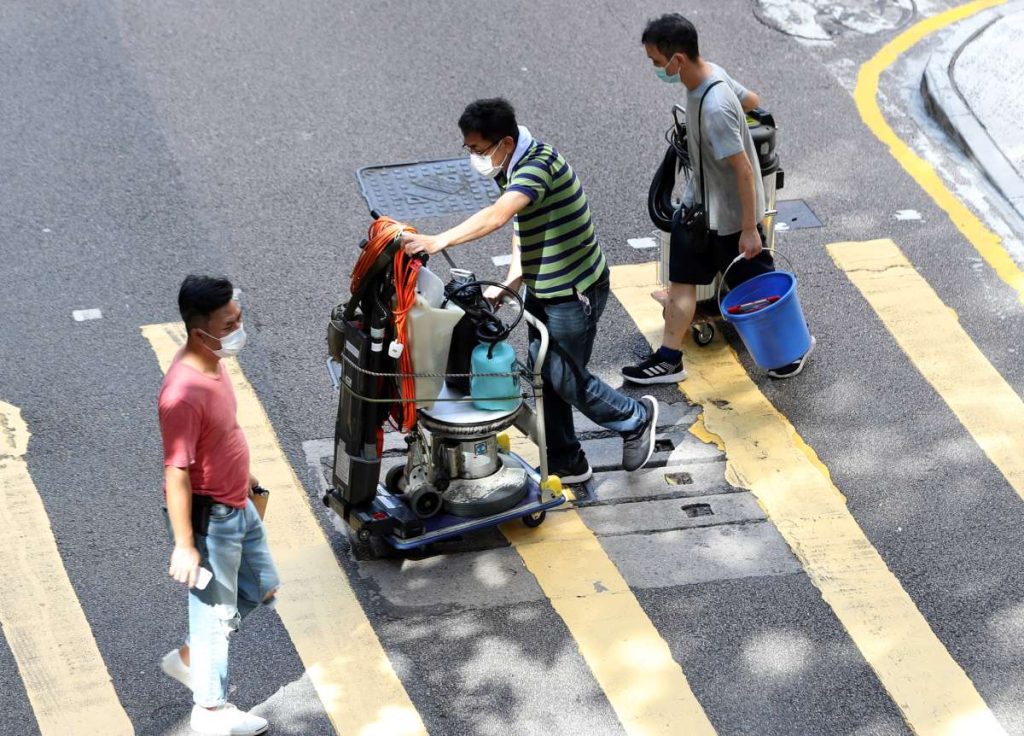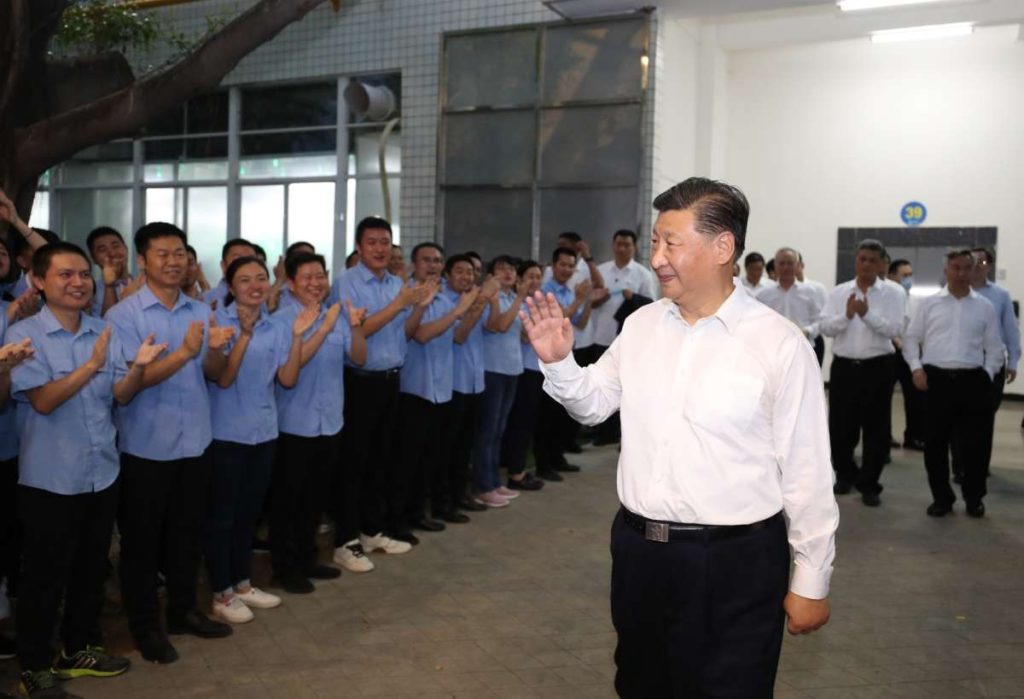The CCP’s inability to provide meaningful opportunities for its young population has led to a crisis of confidence among China’s youth, writes Dr Rakesh Kumar Sharma
As we move through 2024, the Chinese Communist Party’s grip on its narrative of economic prosperity is slipping. The evidence of China’s economic downturn has become too substantial to obscure with propaganda, forcing even the CCP to acknowledge the challenges through its unusually austere 75th-anniversary celebrations.
The roots of this crisis run deep, stemming from fundamental flaws in the CCP’s economic model and political governance. While external factors like the Trump-era tariffs and the COVID-19 pandemic contributed to China’s economic woes, the party’s response to these challenges has only exacerbated the underlying problems.
Perhaps nowhere is the failure of the CCP’s economic stewardship more evident than in the real estate sector, which accounts for roughly 30% of China’s GDP. The ongoing collapse of this sector represents not just a financial crisis but a betrayal of the Chinese middle class’s aspirations. With continuing declines in both home prices and sales, the sector shows no signs of recovery, threatening the savings and investments of millions of Chinese families.
The CCP’s inability to provide meaningful opportunities for its young population has led to a crisis of confidence among China’s youth. The regime’s decision to stop publishing youth unemployment figures in June 2023 speaks volumes about the severity of the situation. Even with their revised methodology excluding students, which conveniently lowered the official rate to 14.9%, youth unemployment remains nearly triple the national average.

The emergence of the “lie flat” movement among young Chinese citizens represents a damning indictment of the CCP’s economic model. When the next generation actively rejects the promise of upward mobility that legitimized the party’s rule for decades, it signals a fundamental breakdown in the social contract between the CCP and its people.
The CCP’s economic difficulties stem from its unwillingness to implement necessary reforms that might threaten its political control. The party’s insistence on maintaining a state-controlled banking system and its distorted industrial policies have created a perfect storm of economic inefficiencies. The result is massive overproduction in key sectors, leading to dumping practices that harm both Chinese companies and international trade relations.
The party’s focus on production capacity over innovation has created an unsustainable economic model. Chinese manufacturers continue to flood global markets with excess inventory, triggering retaliatory trade measures that further damage China’s economic prospects. Yet the CCP remains unwilling to implement meaningful reforms, as doing so would threaten the patronage networks that maintain party loyalty.
As economic challenges mount, the CCP has increasingly turned to aggressive foreign policy as a diversion. The continuation of “wolf warrior diplomacy” isn’t merely about diplomatic posturing; it’s a calculated strategy to redirect domestic frustration toward external enemies. Through military provocations against neighbors and confrontational diplomacy, the CCP aims to stoke nationalism and deflect attention from its economic mismanagement.
Recent provocative actions, including military incursions near Taiwan and the Philippines, border conflicts with India, and aggressive moves in the South China Sea, demonstrate that the CCP’s combative approach to international relations remains firmly in place. These actions serve a dual purpose: distracting the Chinese public from domestic problems while attempting to project strength on the international stage.

The CCP faces a fundamental crisis of legitimacy. For decades, the party justified its authoritarian rule through delivering economic growth and improved living standards. As this implicit social contract breaks down, the regime increasingly relies on surveillance, control, and nationalism to maintain power.
While the CCP’s sophisticated surveillance apparatus may allow it to suppress visible dissent, it cannot address the underlying economic challenges facing China. The party’s prioritization of political control over economic reform has created a self-reinforcing cycle of decline: economic problems lead to social discontent, which prompts tighter control, which further impedes economic development.
As investment continues to flee China and domestic consumption remains depressed, the CCP appears trapped in a paradigm of its own making. The party’s decision to maintain its grip on power at all costs may ensure its short-term survival, but it comes at the expense of China’s economic future and the aspirations of its people.
The CCP’s current trajectory suggests a future marked by increasing authoritarianism at home and aggression abroad, as the party struggles to maintain legitimacy in the face of mounting economic challenges. The cost of this approach will ultimately be borne by the Chinese people, who find themselves subject to an increasingly restrictive political system that prioritizes regime survival over economic prosperity.
ALSO READ: China struggles after Xi’s golden era









